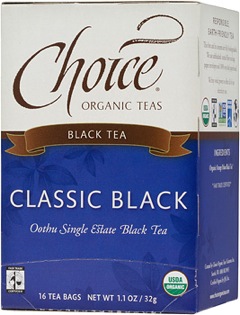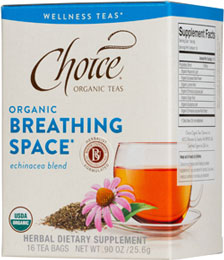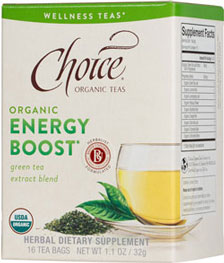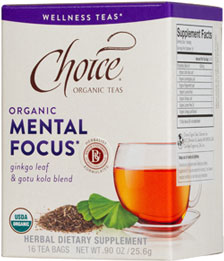
SEATTLE, Wash. – “Great minds think alike” nicely sums the emergence of organics which was seeded in the 1940s but remained a sapling until commercial advocates pushed through legislation leading to government regulated third party certification of tea.
In 1989 Blake Rankin, the founder of Choice Organic Teas, was inspired to exclusively offer pesticide-free, sustainably grown organic tea. Rankin walked the talk, building his off-the-grid home of straw bales, insulated with mud and powered by solar panels with plank cork and recycled tile flooring.
His challenge was sourcing from gardens only beginning to experiment with organic cultivation.
Simultaneously the owners of Oothu Estate, located in the Singampatti Rainforest of India’s Western Ghats Mountains, embraced bio-dynamic principles to become India’s first organic tea garden and later became India’s first Fair Trade Certified tea garden. The pristine estate is situated at 4,000 feet elevation in the Kalakkad Mundanthurai Tiger Reserve of Tamil Nadu.
Oothu’s challenge was finding buyers willing to pay the premium rates necessitated by intense labor requirements and lower yield typical of organic estates. Indrajit Chatterjee, then a young export manager, made the match which has stood the test of time.
Last week Chatterjee, now president of Granum, Inc., which owns Choice Organic Teas, was jubilant in celebrating the 25th Anniversary of its founding. The staff danced to a New Orleans-style street band and celebrated their success at a noisy gathering during the Specialty Coffee Association of America’s annual conference.

“My association with Choice Organic Teas dates back to as early as 1992 when I was a supplier to COT from the first organic tea project in India, from Oothu estate,” said Chatterjee. “I am honored and proud of my association with Granum and to be part of the 25th Year celebrations.” The Bombay Burmah Trading Corp. Ltd., which owns two gardens in Tanzania and eight Indian gardens including Oothu, acquired Granum in 2007.
 Oothu built a modern factory exclusively for organic manufacture in 1992, 10 years before adoption of the USDA National Organic Program. Oothu, which is “surrounded by vast forests…virtually untouched by contamination”, was the ideal location to make a case for organics prior to legislation establishing USDA certification standards.
Oothu built a modern factory exclusively for organic manufacture in 1992, 10 years before adoption of the USDA National Organic Program. Oothu, which is “surrounded by vast forests…virtually untouched by contamination”, was the ideal location to make a case for organics prior to legislation establishing USDA certification standards.
Choice Organic Teas has since promoted the growth and development of organic agriculture in tea estates worldwide and offers more than seventy-five varieties of teas and herbal infusions available in tea bags, tea pyramids, and loose leaf.
The supplier-distributor-retail supply chain enabled Choice Organic Teas to become the first Fair Trade Certified tea company (2000) and the first non-GMO verified tea company (2010). Today the company continues its role in the forefront of tea innovation. In March, the company launched its Wellness Teas, a new line of certified organic, functional teas specially formulated by a master herbalist and faculty member in Botanical Medicine and Ayurvedic Sciences at Bastyr University.
 The teas were designed to support healthy body functions and enhance wellness, while maintaining Choice Organic Teas’ reputation for great tasting, perfectly balanced tea. The blends are classified as Herbal Dietary Supplements (HDS), indicating that the product has met FDA standards for quality and testing.
The teas were designed to support healthy body functions and enhance wellness, while maintaining Choice Organic Teas’ reputation for great tasting, perfectly balanced tea. The blends are classified as Herbal Dietary Supplements (HDS), indicating that the product has met FDA standards for quality and testing.
 “Growing a successful business over 25 years has been a team effort, and we are humbled by and grateful for the immense dedication of our partners in quality, such as the Organic Trade Association, QAI, Fair Trade USA, the Non-GMO Project and the many organic tea gardens around the world who adhere to these standards,” said Ray Lacorte, VP of Operations, Choice Organic Teas.
“Growing a successful business over 25 years has been a team effort, and we are humbled by and grateful for the immense dedication of our partners in quality, such as the Organic Trade Association, QAI, Fair Trade USA, the Non-GMO Project and the many organic tea gardens around the world who adhere to these standards,” said Ray Lacorte, VP of Operations, Choice Organic Teas.
 During its first 25 years the company has been “steadfast in its commitment to organic tea, loyal to its roots in natural products, and continues to win awards for taste, quality, and environmental leadership. That staunch dedication will continue to prevail as it moves forward.”
During its first 25 years the company has been “steadfast in its commitment to organic tea, loyal to its roots in natural products, and continues to win awards for taste, quality, and environmental leadership. That staunch dedication will continue to prevail as it moves forward.”
Choice Organic Teas uses recycled and unbleached materials and has eliminated the use of Polyvinyl Chloride (PVdC). The company operates a certified organic, green facility and purchases wind-generated power to offset 100% of the electricity use of their manufacturing facility.
The company was awarded the Washington State Governor’s Award for pollution prevention in 2004 and the Seattle Public Utility BEST award for sustainability.
Choice Organic Teas’ commitment to sustainable business practices won it a Responsible Packaging Award in 2011. Choice Organic Teas is one of the few tea companies that packages its own tea, which gives it direct control over quality, food safety, and costs.
“We don’t plan to rest on our laurels as we look to our next 25 years,” said Anne-Marie Phillips, Head of Sales and Marketing. “Every day we discover new opportunities to contribute to our industry and the communities where we work and play.”
Learn more at: www.choiceorganicteas.com
— — —
Tea Biz serves a core audience of beverage professionals in the belief that insightful journalism informs business decision making. Tea Biz reports what matters along the entire supply chain, emphasizing trustworthy sources and sound market research while discarding fluff and ignoring puffery.
Tea Biz posts are available to use in your company newsletter or website. Purchase reprint and distribution rights for single articles or commission original content. Click here for details.


One response to “Choice Organic Teas”
Dan,
Thank you for writing about organic tea. I believe organic tea is an important aspect of a good quality and the healthy association of tea. Commonly tea is not washed prior to processing so it’s likely that residual pesticides and herbicides could remain on the leaf while the tea is being processed. Adding hot water to brew tea would wash these substances right into the cup. With so much pollution and chemicals in the world, choosing clean production processes should add value and healthiness to our tea products.